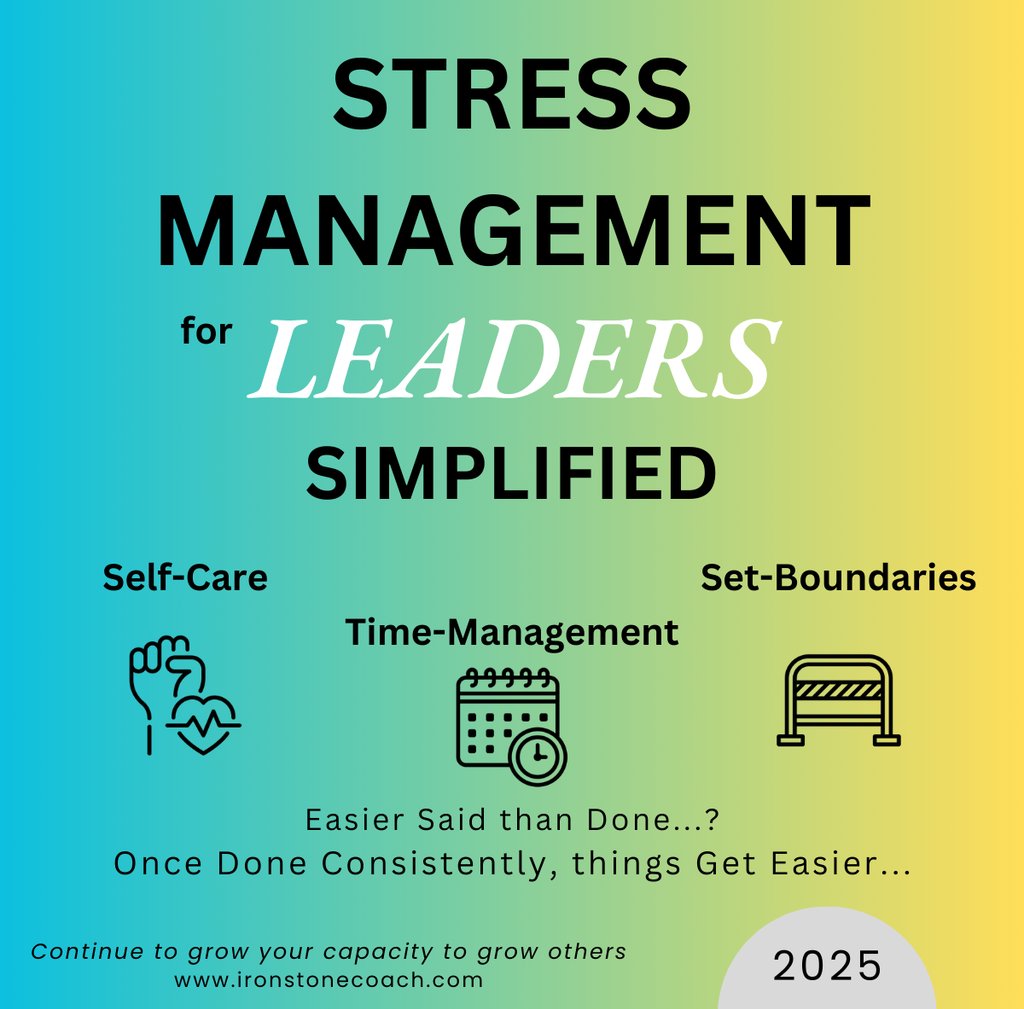Stress Management
How can leaders make things easier on themsleves.
Michael Brown
1/13/20252 min read


Stress Management is an essential skillset for leaders to maintain effectiveness.
Mitigating overwhelm is a daily challenge for many leaders, as they are constantly responsible for so many aspects of their organizations. Even with stellar leadership capabilities and a great team, leaders face a wide range of issues and oftentimes competing interests, pulling them in different directions, which understandably consume so much of their mental, physical, and emotional energy. On top of the workload responsibilities, leaders have personal lives to contend with their time and attention as well. Being a leader is hard work with a lot of pressure. While leaders are typically people that can do anything, we can’t reasonably do everything, for everyone, everytime, all at the same time. Much of the workload comes with the nature of the position but there is much that is also self-imposed …
Let's pause, breathe, and reframe for a moment to see how we can help ourselves out a little bit, and make things a little easier on ourselves. A baseline simplified approach to start helping ourselves in how we can reduce and handle stress can be found in three key principles:
Self-Care: sleep; physical exercise; mental breaks with meditation or at least a few deep breaths; healthy diet and water; talk to others for support and venting before feeling that burnout and disenchantment building up.
Time-Management: know what you personally have to be the one to do or what can be delegated; reduce time-bandits that keep you busy but not necessarily productive; allow buffer-time around activities; have realistic deadlines and outcomes; prioritize the most important and impactful endeavors with focus on quality (not perfection) over quantity with your attention on the most valuable things rather than spreading your energy across more volumes of things.
Set-Boundaries: decline or defer requests; enforce your own focus time rather than engaging in the revolving door of calls and meetings and drop-ins; set aside uninterrupted time for things outside of work like a hobby or family or project that brings you enjoyment and meaning; work reasonable hours and take your time off (and actually be disconnected); minimize the urge to be the superhero and rush to immediately resolve everyone’s problems.
IRONSTONE COACH
Supporting Professionals In Their Efforts To
Build Capacity
Resolve Complex Issues
Succeed in a New Role
© 2024 and Beyond.
All content herein is intellectual property of Ironstone Coach. All rights reserved.
Stock photo/imagery provided by unsplash.com & pexels.com
Veteran Owned Business
State of California
Disabled Veteran Business Enterprise (DVBE)
Certification ID 2040298




